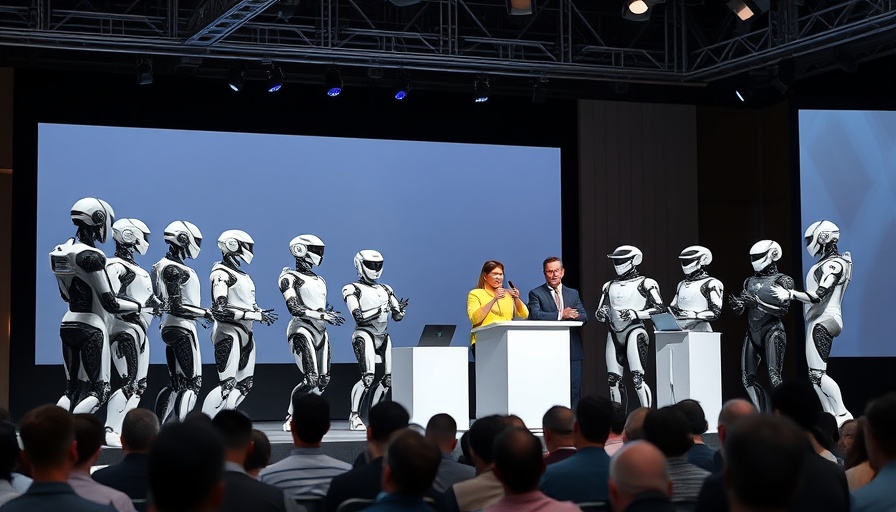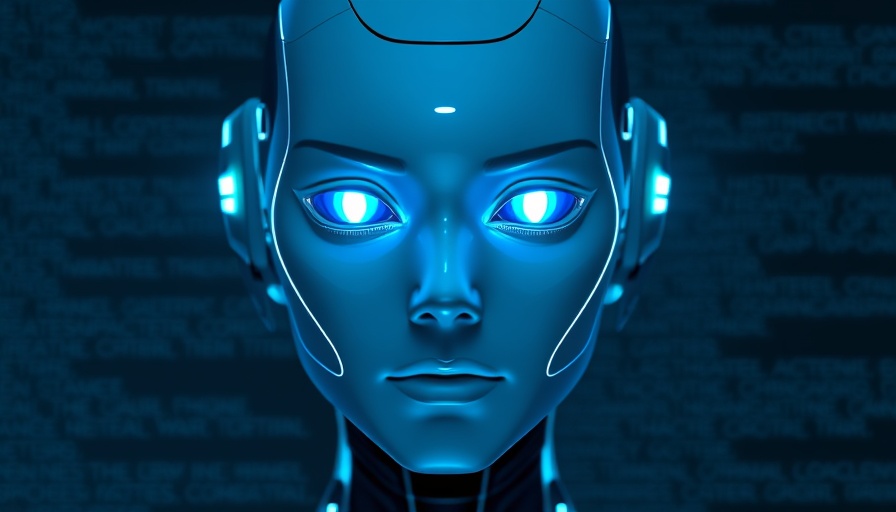
The Age of Autonomous Robotics: A Leap Forward
The landscape of robotics and artificial intelligence has dramatically shifted, showcasing extraordinary innovations that promise to reshape multiple industries. The recent achievements include an AI surgeon capable of performing gallbladder surgeries independently and humanoid robots playing the world’s first all-robot football match. These developments highlight not only technological progress but also the broader implications for fields such as healthcare and entertainment.
In 'New Autonomous AI Robots Just SHOCKED Everyone: AI & Robotics News', we delve into groundbreaking innovations in robotics and AI, prompting a critical examination of their implications for various sectors.
Revolutionizing Healthcare with AI Surgical Robots
One of the standout breakthroughs comes from researchers at Johns Hopkins, where an AI-powered surgical robot successfully executed gallbladder removals autonomously. Initially utilizing the Da Vinci Research Kit, the team enhanced it with a sophisticated machine learning model, leading to the creation of the Surgical Robot Transformer Hierarchy (SRT). This innovative system trained by observing real surgeries, mimicking the learning process of a medical student.
What sets the SRT apart from its predecessors is its capability to adapt in real-time. It demonstrated an impressive 100% completion rate across multiple surgeries on human-like synthetic models. By understanding verbal instructions from the surgical team, the robot could adjust to unexpected changes in tissue, establishing a new standard for trust and autonomy in medical robotics that could eventually see it performing surgeries on real patients.
Robots on the Sports Field: A New Era of Entertainment
Just as fascinating is a recent milestone achieved in Beijing, where humanoid robots participated in the country's first robot football tournament. Four teams competed, displaying significant capabilities in spotting and tracking the ball, positioning themselves, and even communicating with teammates. While the team's skill levels resembled that of kindergarteners, the emphasis was on their autonomy rather than finesse. This victory highlights a crucial development in robotics: enhancing the ability of machines to operate independently.
Transforming Warehousing with AI Coordination
Meanwhile, Amazon has introduced its millionth robot into fulfillment centers, a move that showcases their commitment to enhancing logistics efficiency. With the deployment of a new generative AI model named Deep Fleet, Amazon boasts that their robots now more efficiently coordinate their paths, optimizing delivery times by 10%. As these advancements unfold, they are creating new career pathways for human employees, transitioning them into technical roles such as maintaining and programming these robots.
The Future of Robotics: Trends and Predictions
The deployment of robotic technology is accelerating, supported by automation in various sectors. Companies like Intel are furthering this trend through investments in robotics, with a $50 million infusion into their spun-off Real Sense division, emphasizing the reliability of safety in AI innovations.
Looking forward, it's predicted that homes and public spaces will be filled with humanoid robots within the next decade. Companies like Figure AI are leading this charge, having raised substantial venture funding, indicating robust investor confidence in robotics to transform everyday life.
The Role of AI in the Arts
The implications of AI are not limited to practical applications; they extend to creative realms as well. An AI artist named AIDA recently unveiled a portrait of King Charles, provoking discussions about the nature of creativity in the age of artificial intelligence. As conversations about responsible innovation continue to grow, AIDA claims its goal is to spark debate rather than replace human artists, showcasing how AI can navigate the cultural landscape.
Implications for Michigan's Tech Landscape
These technological advancements aren't just global phenomena; they hold significant importance for the local context of Michigan and Metro Detroit. As a hub of innovation, Detroit is positioning itself at the forefront of these trends. The Michigan venture funding landscape is experiencing unprecedented growth, with startups exploring everything from AI healthcare solutions to robotics, IoT improvements, and advanced software developments. Events and incubators are nurturing talent ready to contribute to the evolving tech ecosystem.
Ultimately, as the lines between technology, healthcare, and everyday life blur, the question remains: How will Michigan embrace these changes within its local tech infrastructure?
 Add Row
Add Row  Add
Add 



 Add Row
Add Row  Add
Add 
Write A Comment